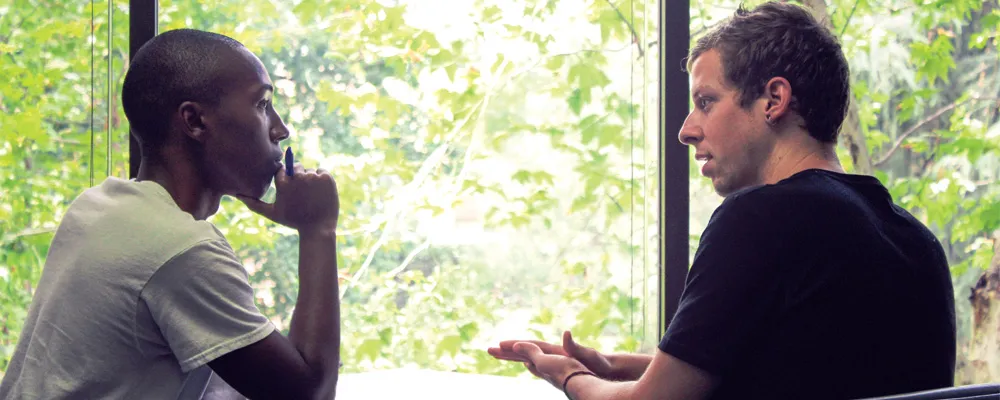- Home
- >
- APU Articles
- >
- News Article
Focus on Writing Elevates Students’ Skills across Disciplines
November 23, 2015 | Written By University Relations

Beginning in fall 2016, the GE program will include three new courses that build on one another and advance students’ skills throughout their college career. In Writing 1: The Art and Craft of Writing, first-year students learn, read, and write about writing in a small-class setting that emphasizes content and skill. Writing 2: Genre, Evidence, and Persuasion helps students assess writing styles and apply them to broader fields, such as the sciences, humanities, theology, and others. Finally, Writing 3: Writing in the Disciplines focuses on students’ specific majors and the needs within their prospective professions. Upon completion, students will walk away with skills that transfer from class to class and into their career.
Supporting this effort, the Writing Center, led by new director Jody Fernando, comes alongside undergraduate, graduate, and professional learners, and the response has been positive. The number of students taking advantage of this resource more than doubled, from 3,400 appointments in 2012–13 to more than 8,000 in 2014–15. Among its many services, the Writing Center, which moved into a larger facility in Marshburn Library this fall, offers one-on-one assistance, handouts and tutorials, and workshops. The growing team includes writing coaches at four regional centers, 2 doctoral dissertation coaches, and 30 on-site and online coaches.
To ensure that faculty, staff, and students at every level speak the same language, former Writing Center director and current executive director of writing programs Rebecca Cantor, Ph.D., produced a Writing Program Lexicon, establishing a consistent vocabulary that facilitates smooth transitions between courses and disciplines. “Writing matters in every field, and every faculty member has something valuable to contribute to the process,” said Fernando. “We are in the business of helping students become better writers, and good writers become great writers. We are not here to ‘fix’ papers, but rather, we ask questions that help students overcome procrastination, learn to brainstorm, focus their message, improve sentence structure, and address their specific purpose and audience.” This immersion experience cultivates a culture of writing at APU that serves every member of the community, including faculty and staff, seeking to communicate, understand, and engage in information pertaining to their academic, professional, and social lives.